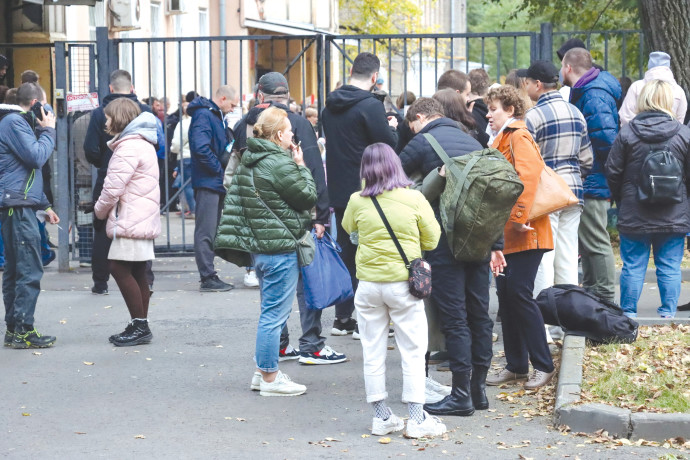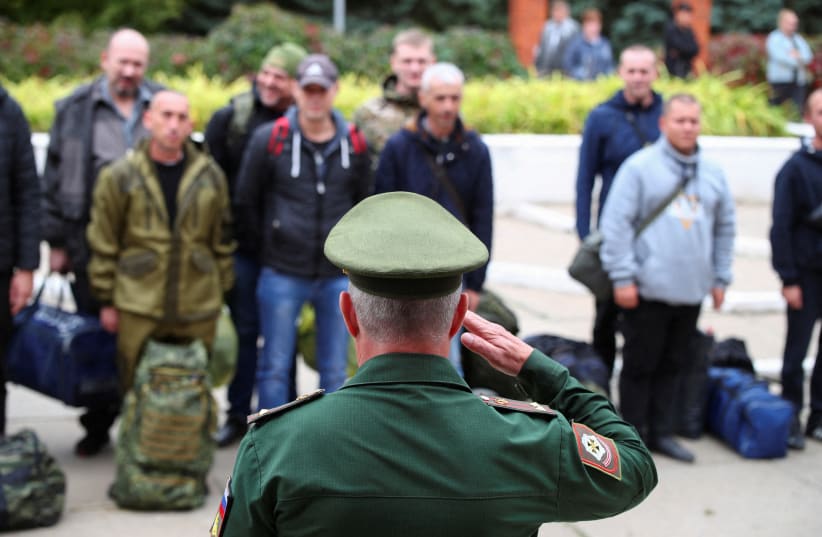Recruiting bureaus in Russia have begun pulling homeless and needy people off the street and recruiting them for the war in Ukraine, an independent local new source reports.
"The officers of the military commissariats in Moscow came to charity centers that provide shelter and food to the needy and homeless, as well as hostels where migrant workers live, and forced them to enlist in the Russian army," the independent Russian news site "Mediazona" reported.
Volunteers in the "Food Not Bombs" group told Mediazona that since Putin's announcement of partial mobilization, dozens of homeless people have been taken to military commissariats." Similar testimonies also came from other charities that operate in Moscow and other major cities.
"The police come here and see the line of people who are about to receive food. They grab them by the back of the neck and take them against their will," testified an employee of a Christian charity organization that helps the members of the charity center. "They loaded them onto buses that were waiting and drove from there to the military commissariats," she added.
"The police come here and see the line of people who are about to receive food. They grab them by the back of the neck and take them against their will."
Local testimony
It seems that the officers of the recruiting bureaus and the police do not filter who they pull off the street, and work to fill quotas. One of the homeless people who was taken, a 60-year-old man, said that he was taken to the recruitment office where there were long lines of homeless people he knew. In the end he was released because of his age. "They said they don't recruit people over the age of 45."


It is not only the homeless who are forcibly recruited into the Russian army. According to reports from local sources, Russian policemen also came to hostels where migrant workers live. "They surround the hostel and then go through the rooms. Whoever they think is suitable for recruitment receives a document informing him that he must report to the recruitment office the next morning and his passport is taken from him."
It is not clear how many non-Russian foreign subjects were forcibly recruited in this way. It is estimated that there are several hundreds, and it is doubtful that the countries from which they came are aware of this. Many of those migrant workers entered Russia illegally, and are without proper legal status.
Reaching the mobilization quota
In a press conference on Friday, Putin said that 222,000 out of the planned 300,000 people had already been successfully mobilized, and there were no proposals from the Ministry of Defense to increase the number beyond the initial 300,000.
The Russian President explained that the length of the line of contact with Ukraine exceeds a thousand kilometers, and it is impossible to protect it only by "contract" soldiers. Therefore, "it was necessary to declare a partial mobilization."
When asked about the little to no training that some conscripts receive, as one reporter gave an example of a Moscow resident that was killed after "receiving no training and being sent straight to combat," Putin stated that the training is indeed short, and in some cases consists of under two weeks of training in total.
When asked if he had regrets about the conflict in Ukraine, Putin simply said "no," and claimed that Russia "was doing the right thing."
